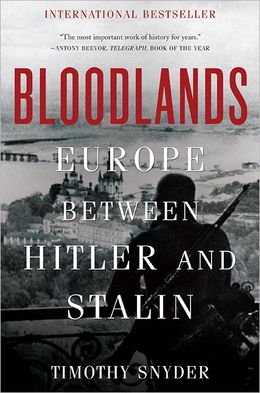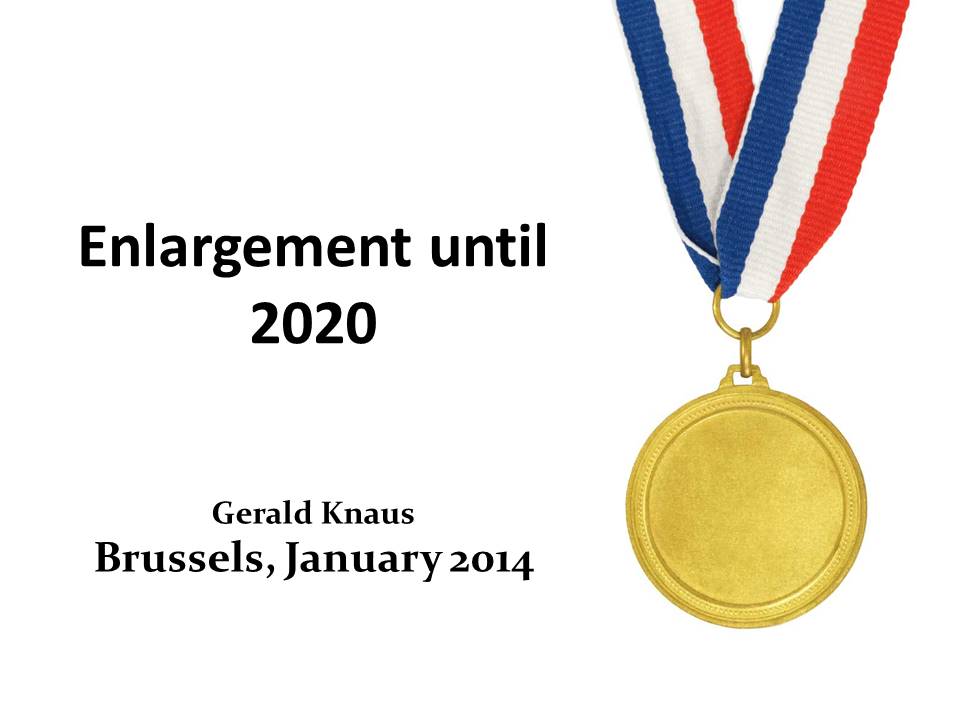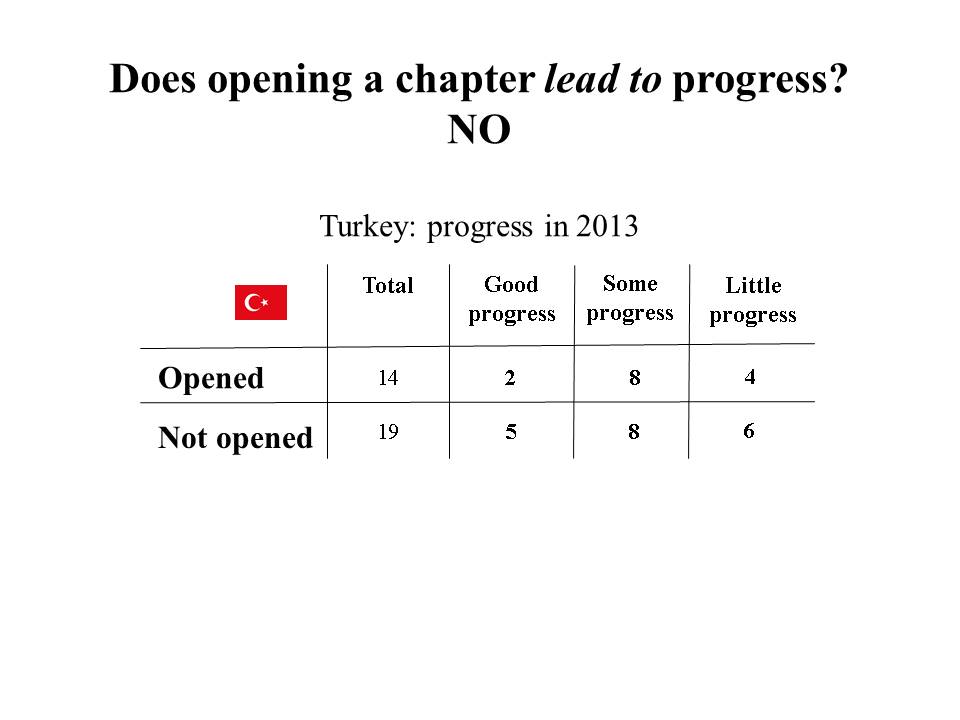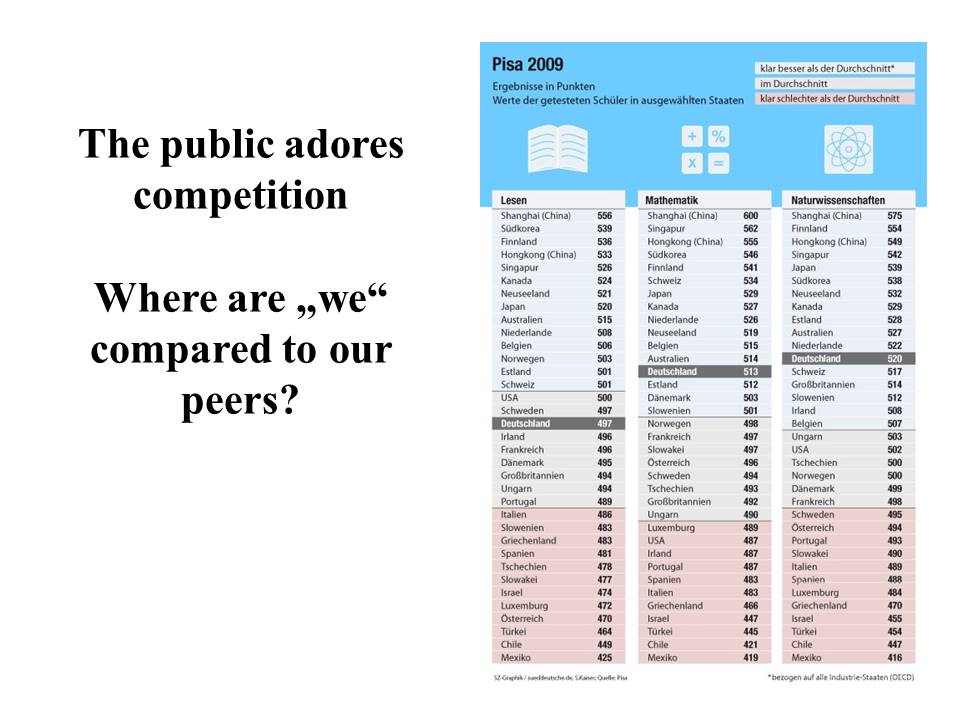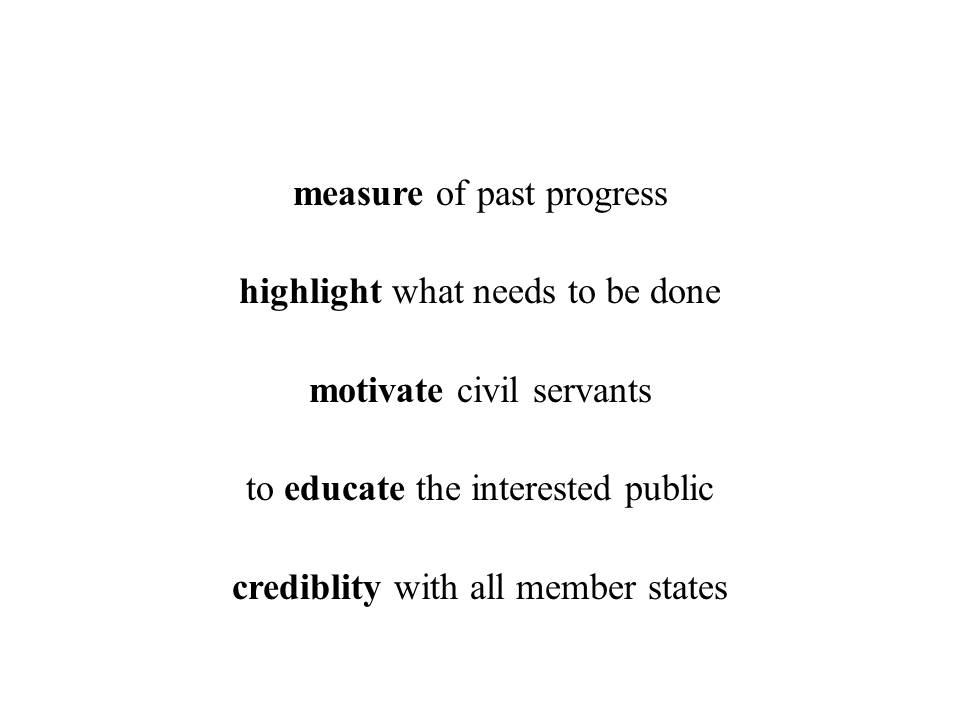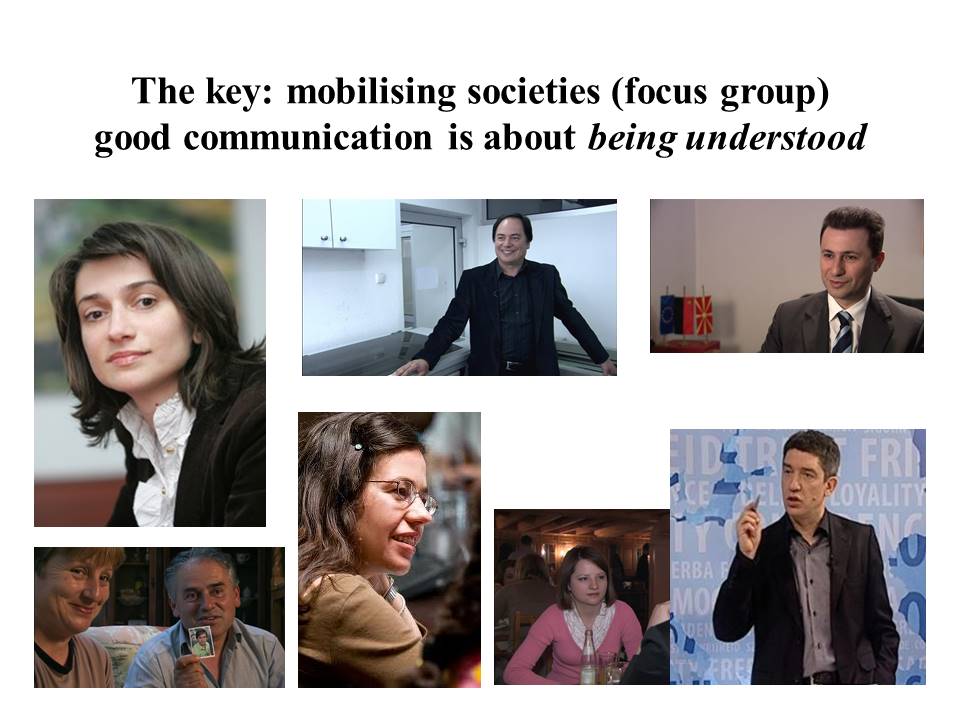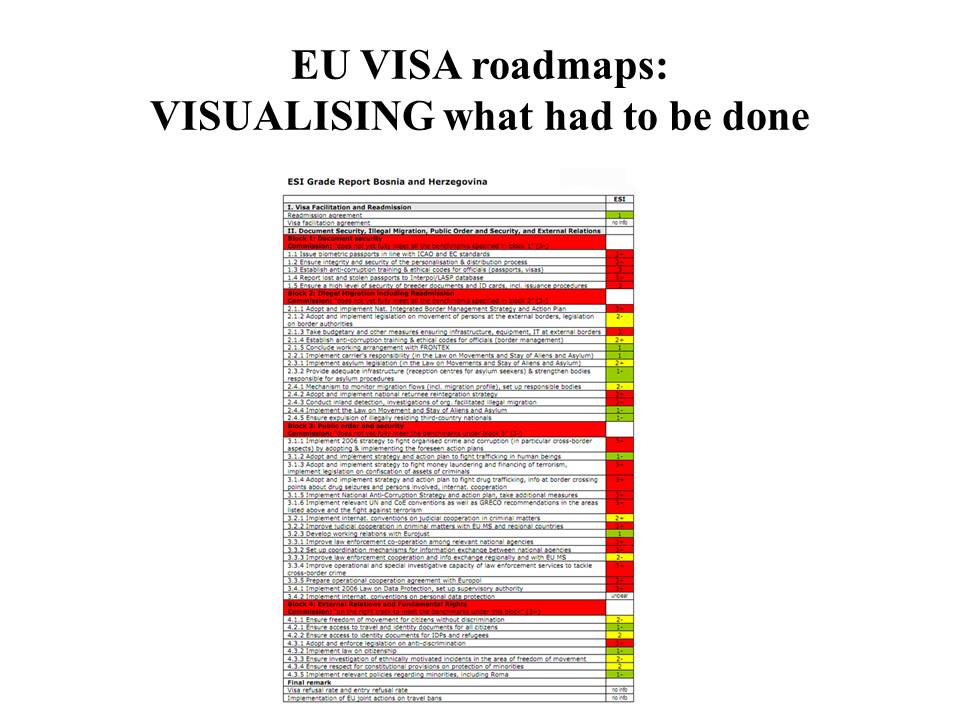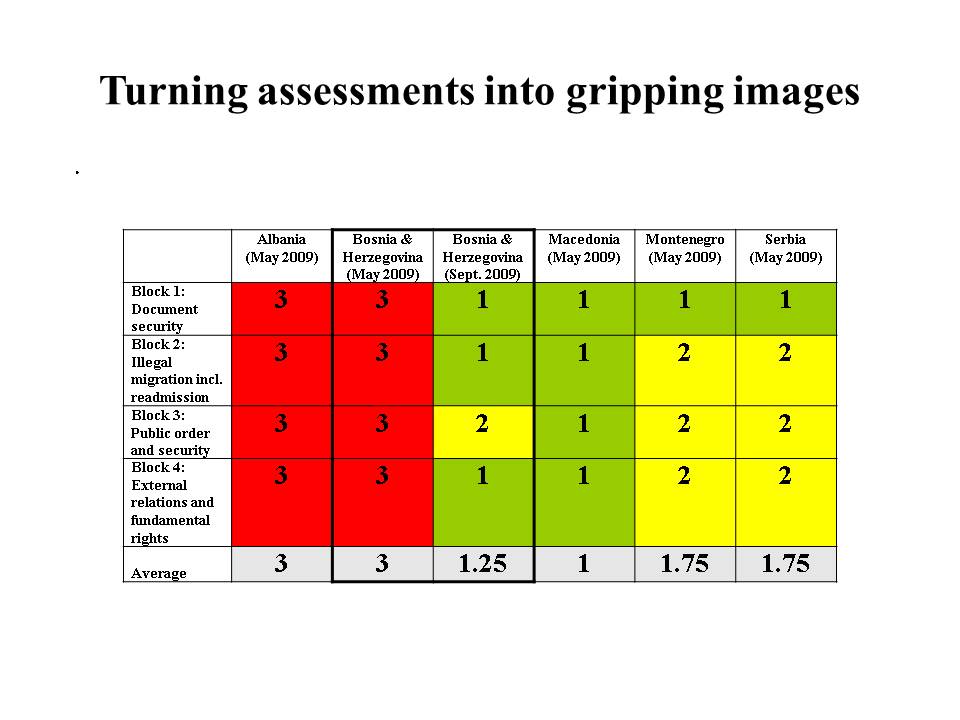[1] http://www.publications.parliament.uk/pa/cm201213/cmhansrd/cm130301/debtext/130301-0001.htm
MORE FROM THIS DEBATE
Rory Stewart (Penrith and The Border) (Con): I begin by praising my hon. Friend the Member for
Dover (Charlie Elphicke) for introducing the Bill. It raises an extremely
important issue which clearly irritates many people in Britain and is very
dangerous. We have got to a situation where human rights are talked about as
though they were some trivial, unnecessary issue. The phrase is connected in
people’s minds with phrases such as “health and safety”. That is a very sad
effect.
The question for us today is how we deal with the
problem. My hon. Friend has eloquently explained that we have a problem and has
eloquently given countless examples of things which intuitively make many
members of the British public extremely anxious and extremely unhappy with the
judicial and the political institutions. We should respect that. It might be
tempting to say, as some lawyers do, that the British public are not focused
enough on the moral details and the legal details of the case, and to
trivialise their objections. This would be unfair, because there is obviously
something important, deep and intuitive going on that makes people anxious
about this kind of activity under the banner of human rights.
What is our solution? How do we look at these issues? We have to begin with a sense of
what human rights are. Let me politely challenge slightly the definition of
human rights put forward by my hon. Friend, without calling into question his
overall point, which is that we are now in a mess. It seems to me that we can
begin with a definition of human rights that would state that to say that
somebody has a human right is to say that anyone, anywhere, treated in this
fashion is wronged, and that their possession of that right is not relative to
the costs or benefits of upholding it in any particular case. That sounds very
technical and it sounds pathetic, but it is an important thing to establish at
the beginning of this debate.
Human rights are based on notions of dignity and of inviolability, and they are in
their nature universal. To say that somebody has a human right is a statement
about their moral status. It is not a statement about their nationality. It is
not a statement about their citizenship. It is to say that anyone, anywhere,
treated in this fashion is wronged, and that although there may be a threshold
above which that right could be suspended, below that threshold their
possession of the right is not relative to the cost or benefits of upholding it
in any particular case.
Jacob Rees-Mogg: But surely once there is a threshold, the right is not absolute.
Rory Stewart: My hon. Friend makes a very important point. Let me give an example. The concept of human
rights is based on a notion of human dignity and on a notion
that humans should be treated as ends in themselves, rather than as a means to
an end. In other words, it is a sort of Kantian world view. It has an absolute
view of the world on how people should be treated, but at a very extreme level
there may be a threshold at which we in the Chamber would intuitively feel that
that right could be suspended.
For example, if a child was in possession of information about a ticking bomb that was going to destroy a million people in
a city, we might feel that in that situation it was justifiable to twist the
child’s thumb to find out where that bomb was. In other words, there might be a
threshold, in situations so extreme as to be almost hypothetical, where our
human intuition would be that the right would be suspended, but, below that
threshold, the possession of the right is not a function of the costs or benefits
of upholding it in any particular case.
For
example, it would not be justifiable in any situation to kill one individual in
order to harvest their organs to save five other individuals.
Jacob
Rees-Mogg: May I come
back to my hon. Friend on his previous example? He said that a particular act
would be justifiable to save a million people. What about 500,000? What about
50,000? What about 10,000? What about one?
Rory
Stewart: That is a
fantastic argument. The argument that I was trying to make was that in the case
of five, 10, 15 or 20 people, our moral intuition is that a particular act is
unacceptable. At another level, at the level of a million, our moral intuition
is that it might be acceptable. This is a very difficult point. The point that
I am trying to make is that we are in a sense deontologists. We are absolute up
to a certain threshold, but there is a certain threshold at which a utilitarian
or consequentialist calculus comes in.
As I said
earlier, if it were a case of one person being killed to save five—in other
words, that somebody could be killed, their organs would be harvested, and
those organs would be used to keep five people alive, that would not be
justifiable. Their possession of their inviolability—their immunity, their
right to life—is not proportional to the costs or benefits of upholding it in
any particular case. There may be—we almost never get anywhere near this kind
of threshold—as a hypothetical, theoretical point, a threshold at which a right
might be overruled by a consequentialist consideration, the one against a
million. But below that threshold, the possession of the right is not relative
to the costs or benefits of upholding it in any particular case.
Jacob Rees-Mogg: I am grateful to my hon. Friend for giving way once again. I think that he rather sold the
pass once he had the child whose thumb could be twisted to save 1 million
people, because if their thumb could be twisted, could their arm be broken? We
are now getting into an argument about what is relative and find that there is
no absolute in this. The same applies to the example of harvesting a person’s
organs: we might not allow it if it would save five people, but what if it
would save 5 million people? Does it then become justifiable?
Rory Stewart: My hon. Friend asks a very important question of moral philosophy. It is a question of moral
intuitions. We are trying to create in our legal and moral systems something
that reflects our common-sense intuitions as humans. We try to interrogate
them, be logical and go back to first principles, but our common-sense
intuition, I feel, is that humans have a moral status, that they are
inviolable, that they have an intrinsic dignity, and that they should be
treated as ends in themselves, not as means to an end.
However—this relates to the case of one against 1 million—we also have a strong moral
intuition that there might be certain extreme circumstances in which it is
justifiable to overrule an individual’s rights. There are different ways we can
deal with that. In the German legal system, for example, it would be argued
that twisting the child’s thumb, although morally justifiable, is not legally
justifiable. The individual responsible would be prosecuted and convicted, but
they would be congratulated on having made the correct moral decision, even if
it was the wrong legal one. In our normal lives, however, such scenarios are
purely hypothetical; we do not come across ticking bombs or children who could
save 1 million people.
In our everyday lives, human rights are, in themselves, inviolable, which is why, as
we consider the case brought by my hon. Friend the Member for Dover, we must
ask ourselves this: what is wrong with the current system? It seems to me that
there are four possible answers to that question, and he has given four
possible answers. One of them, which my hon. Friend the Member for North East
Somerset (Jacob Rees-Mogg) has raised, relates to the question of sovereignty.
The first possible answer on what is wrong with the current settlement on
rights is that there is a problem of parliamentary sovereignty. The notion,
which we could explore in greater depth, is that Parliament is sovereign and
that the European Court of Human Rights, by overruling the decisions of the
British Parliament, is not acting in accordance with the British constitution.
The second argument that could be made is that a question such as whether prisoners
should have the right to vote—a recent and difficult case—is purely relative;
that it is culturally relative. It could simply be argued that the reason the
European Court should not get involved in prisoner voting is not because of
sovereignty, but because the question is culturally relative—I say “tomato”,
you say “tomayto”. These things are purely subjective and based on a particular
cultural or historical context and the Court should not be fussing about them.
The British think one thing, the Spanish think another. There is no way of
resolving it, because it is purely relative.
The third argument is that we are dealing with subjects that are purely trivial, the
argument being that voting rights for prisoners simply do not matter. There
might theoretically be a moral solution to the question of whether prisoners
should be able to vote, but it is a trivial issue and not something the
European Court should be dealing with. Instead, it should be looking at more
important issues.
The fourth argument, and the one I am tempted to choose, is that this is not
fundamentally a problem of sovereignty, relativity or triviality; it is the
problem of the European Court using the wrong principles to come to the wrong
judgment.
Permit me to expand on those four arguments in more detail. The first argument is about
parliamentary sovereignty, which my hon. Friend the Member for North East
Somerset dealt with so eloquently. It is of course true that traditionally
within the British system parliamentary sovereignty was supreme. Although Dicey
talks about parliamentary sovereignty and the rule of law, it is quite clear
that what he means by the rule of law is not what Lord Bingham means by the
rule of law. In other words, in the conventional British interpretation, the
rule of law is not something equivalent to the US constitution. It is not an
independent body of law against which parliamentary statutes can be judged. It
was not the case in Britain that an Act of Parliament could be struck down by a
court on the grounds that it did not accord with the rule of law. That notion,
which is of the 15th and 16th centuries, that there was an independent common
law that trumped the actions of Parliament, was put aside. Essentially, for the
past 300 years we have believed that Parliament is sovereign.
Under that interpretation, the European Court cannot possibly be engaged in trying to
subjugate Parliament. At the very best, all it is engaged in is an
international treaty obligation through which the British Parliament has
voluntarily determined that it wishes to accept the rulings of the Court but
can choose to ignore them if it so wishes, and in doing so it would not be
breaking British law but would simply be in breach of its international treaty
obligations.
So deep is that belief in the British mind that we are now the only advanced democracy
in the world that makes no explicit distinction between constitutional and
normal law. In other words, we have a situation in which, as my hon. Friend the
Member for Dover has so eloquently explained, our constitution shifts
continually over time and, at its worst, “bends like a reed” in the wind. It is
theoretically possible, in a way that it is not in any other advanced democracy
in the world, for a simple majority in Parliament—a majority of the people
gathered here today, for example—to change the fundamental constitution of the
British nation.
Every other advanced democracy draws a distinction between constitutional and normal
law so that changing the fundamental constitution requires a special procedure.
In northern European countries there is generally a demand for a two-thirds
majority in Parliament, and in southern European countries there is more of a
focus on a referendum. In some countries, such as Italy, there is interest in
an intermediate vote, so the Parliament must be dissolved and the proposed
constitutional change put to the electorate through a general election. That is
all designed to make it very difficult for a Parliament to change the
constitution. The idea—not a British one—is that a Government or Parliament are
temporary, but the people are public, and the constitution exists to protect
the people from the Parliament.
It would be possible to base the entire opposition to the European convention on human
rights on an argument about parliamentary sovereignty, as my hon. Friend the
Member for North East Somerset has, using British constitutional history. But
that argument rests, fundamentally, on political institutions, not morality. It
is difficult to see an ethical or moral case for the notion of untrammelled
parliamentary sovereignty as an alternative to the protection of the
inviolability of the individual’s rights. Indeed, the modern notion of
democracy, which is shared in every other advanced
democracy in the world, combines representation of the majority with protection
of the individual’s rights.
Jacob Rees-Mogg: I do not think that my hon. Friend has fully established the inviolability of the individual’s rights. He has stated it, but he has not established it.
Rory Stewart: My hon. Friend, with enormous eloquence, raises a fundamental philosophical debate. The answer
to his point is that one cannot establish the existence of inviolable rights
unless one accepts two further principles. The first is the equality of humans;
the notion that I, you, Mr Deputy Speaker, my hon. Friend, and indeed someone
we have never encountered who lives at the other end of the Congo, are in all
important respects equal in dignity and in rights. That is an insight of logic
and of human consciousness and a basic commitment to the notion that, although
we might feel that we are special and the only people who exist, as we become
adults we acknowledge that other people, too, are independent moral actors who
possess exactly the same dignity. The inviolability—the rights of the human
being—which my hon. Friend has raised, is derived from that notion of equality
and dignity.
Jacob Rees-Mogg: For the record, I think that the Deputy Speaker is so many leagues above me that I am
not sure my hon. Friend is right. If one takes my hon. Friend’s point about the
equality of humanity—the equality before God that I believe as a matter of
faith—that does not mean that rights are always applied equally. Even in this
Bill, the right to life—that most essential right—is qualified in the case of
self-defence, so rights immediately become relative.
Mr Deputy Speaker (Mr Lindsay Hoyle): Just for the record, I think we are all equal unless there is a long intervention, when I might show a little more power.
Rory Stewart: Rights are indeed qualified, but that does not mean that they are relative. This is an
important distinction. The clause that my hon. Friend mentioned does indeed
establish the right but says that under certain specific circumstances it may
be qualified or overruled. That is not a statement that the right is relative.
It is not a statement that the right to life contained in the European
convention on human rights is purely relative. It is not a statement that,
below the threshold of the qualification, in other words, the specific
circumstances in which a right may be suspended—this is what makes rights quite
different from any other form of moral law—one’s possession of a right is not
relative to the costs or benefits of upholding it in a particular case.
One’s right to life may be suspended at a certain threshold. The thresholds described
in the European convention include those relating to civil disorder and
military law. However, below those thresholds one’s right to life cannot simply
be looked at in terms of the costs or benefits of upholding it in any
particular case.
Jacob Rees-Mogg: But this right is so clearly absolute. The old Riot Act provided for the militia to start
shooting because of the decision made at that time that the
maintenance of order required immediate use of fatal force. That is no longer
thought to be appropriate. It is therefore about a relative judgment relating
to the balances between the individual and the collective.
Rory Stewart: We need to be very clear about what we mean by “relative”. The notion of “relative” that my hon. Friend is rehearsing simply
says that rights and moral values evolve in a historical context. As he says,
it is simply a matter of historical fact that different cultures at different
times have taken different moral positions. Aristotle, alongside his other
great observations, believed that women and slaves lacked souls. Today we
realise not merely that he thinks one thing and we think another—that it is
relative—but that he is wrong. He is wrong because moral language is implicitly
not relative; it is, in its very structure, absolute. Moral language does not
say, “I don’t happen to like you killing someone, but if you want to kill
someone that is up to you.” In other words, it does not say that killing
someone or not doing so is like you liking chocolate ice cream and me liking
strawberry ice cream; it says that it is wrong and ought not to be done. Moral
language is about questions of “ought”, not questions of “is”.
Jacob Rees-Mogg: But in saying that something ought not to be done one immediately goes on to add “except in certain circumstances.”
Rory Stewart: I will try again. The central point is that the notion of moral obligation—the notion of what
ought or ought not to be done—relies on two conflicting principles that connect
at the moment of the threshold. Those two conflicting principles are, on the
one hand, the notion of the inviolability and dignity of the human being, and,
on the other, a consequentialist or utilitarian argument of the greatest
happiness of the greatest number. Philosophically, the origins of these two
types of argument are entirely distinct. One is a deontological argument that
simply states the dignity of the human being and their inviolability; the other
is an instrumental argument based on consequences or results. Our legal system,
and indeed our moral intuitions, combine these two, which meet at a point of
the threshold. This is what we mean by “ought”. We mean exactly what my hon.
Friend the Member for North East Somerset suggests: that the individual ought
not to be treated like this except in very extreme circumstances above a
certain threshold below which the individual’s possession of the rights is not
a function of the costs or benefits of upholding it in any particular case.
This is important because it is a distinction between a relative position that says “I
can take your life whenever I feel like it on the basis of no moral argument
and no logical position” and a separate position that says “I may not take your
life. There are certain extreme situations in which it could become legally
permissible to do so, but I may not.” The distinction between human rights and
a relative position is a distinction on permissibility—a distinction on what
may be done.
Jacob Rees-Mogg rose—
Rory Stewart: Before my hon. Friend intervenes again, let me be absolutely clear that the distinction is this: when I say that somebody has a right not to be tortured, I am saying that they may not be tortured. I am not saying that they will not be
tortured; there might be a horrible situation in which their Government do
torture them. The statement is a moral statement, not a prediction about the
future. It is a statement about what we morally give permission to do: “You may
not be tortured; you may not be killed.” It is then possible to state certain
threshold circumstances in which our moral intuitions in terms of human rights
shift to moral intuitions in terms of a consequentialist world view in which we
say, “One person might be killed for the benefit of a million.” These are nice
questions of moral philosophy that do not usually come up in our everyday life,
which is based on the dignity and inviolability of the human being regardless
of circumstance.
Charlie Elphicke: My hon. Friend is making a very powerful argument in which he highlights a key difference
between civil law and common law. In common law, we would take a utilitarian
approach. If a plane were heading to London with 100 people on board and a
nuclear bomb, we would say “Save the city”, but in Germany, under the civil law
code, people would say, “You can’t touch the plane because of the inviolability
of the right to life.” That is at the heart of some of the problems that I have
been wrestling with in the Bill.
Rory Stewart: The example of the plane is a very good one. It is an exact example of where our moral
intuitions collide. My instinct would be that neither ourselves nor a German
legislature would be comfortable with the decision either way. These are
terrible, terrible decisions involving two very deep moral intuitions. The
first of those is that individuals should be treated as ends in themselves and
not means to an end. As my hon. Friend so rightly points out, the German
supreme court holds that a plane could not be brought down in those
circumstances because it feels deeply that that would be to treat the people on
it as a means to an end rather than an end in themselves. In effect, it would
be doing to them something similar to killing one person in order to harvest
their organs to benefit five others. The calculus is that five having benefited
is not enough to outweigh the harm done to one. That is an important moral
intuition.
However, my hon. Friend is correct to suggest that in the end most of us would disagree
with that notion. I personally would disagree, as would, presumably, my hon.
Friend the Member for Dover. In a situation of that sort, where 1 million
people are going to be killed by an atom bomb, another deeper, stronger moral
intuition arises which we often describe in terms of common sense but is in
fact a utilitarian calculus—that there is a certain threshold of absurdity beyond
which the protection of the rights of the individuals in that plane no longer
makes sense. My hon. Friend the Member for North East Somerset has been very
good at pointing out the contradiction that these are two separate
philosophical principles, and at raising the question of where the threshold
comes in. The terrible judgment that a politician would need to make in that
situation is not one that can be resolved except through a deep understanding
of the particular facts of an individual case.
Jacob Rees-Mogg: I am grateful to my hon. Friend for giving way; I
will try to make this my last intervention. Once we accept the threshold, it
becomes fundamentally arbitrary and merely a matter of arguing where it should
be set. Therefore, the question is of the legitimacy of who sets that
threshold—whether it should be the Queen in Parliament or a foreign court.
Rory Stewart: There is a disagreement here and it is not one that we can paper over. The question is:
where should we put the weight of sovereignty? How important is sovereignty?
Does sovereignty confer some form of immunity? Is there some magic in this
Chamber that allows the legislators in it to do whatever they want? Is it the
case, as Lord Hoffmann suggested in his judgment, that if this Chamber wished,
it could simply flout human rights? Is that a statement about political fact in
institutions, or is it about morality? Do we think that it is simply a fact
that this Parliament could do whatever it wants, or do we think that this
Parliament ought to be able to do whatever it wants? On this is based our whole
conception of democracy.
Those who feel that this Chamber not only could, but ought to be able to do whatever it
wants are basing their argument on one principle only, which is the principle
of majority representation. Where I suspect there may be a disagreement between
myself and my hon. Friend the Member for North East Somerset is on the notion
that democracy is based not on one, but on two principles—majority
representation and the protection of minority rights—and that, in the absence
of the second criterion, we cease to be, in the full sense, a democracy.
This is a very difficult argument to make, because in this country we have every reason to be proud of the performance of this
Parliament. Although theoretically, constitutional anxiety leads us to believe
that this Parliament could do truly barbarous things, as a matter of fact it
has not. In fact, consistently this Parliament has shown itself very respectful
of the unwritten laws of the British constitution. When Parliament has
attempted to fundamentally change the constitution of the United Kingdom
through a simple majority in the House of Commons—as, indeed, it did with the
proposal to abolish the House of Lords—it refused to take that opportunity. It
backed away from it. Parliament’s reluctance, innate conservatism and caution
with regard to issues relating to the constitution have meant that, from 1911
to the current day, people pushing for a written constitution or more formal
constraints on the power of Parliament have not won.
That is good and it shows two positive things. First, it shows the important principle
of common sense. Everyone in this Chamber agrees that we do not want to live in
a world of technocrats. We like the fact that the British public have a say and
that their common sense permeates this Parliament. At our best—we are not
always at our best—we are a lens that connects the Executive to the voting
public. We act as a mediator between public opinion—the sentiment, imagination
and culture of the British people—and the laws passed in Parliament. Nobody in
this Chamber wishes to pass to a world where we vest our power in technocrats
or experts, such as a Mario Monti-type figure with great insight, who think
they know what is best for the people. Our unruly common
sense means that the public have tended to respect their landscape, to
challenge the Government on, for example, wind turbines, and to refuse to
co-operate—in a similar way to that in which the French public occasionally
refuse to co-operate on farming—with the theoretical ideas of experts and
Government.
The second reason to be proud of the sovereignty of Parliament is that it reflects a culture, but the question for my hon.
Friend, who is one of the great supporters of untrammelled parliamentary
sovereignty is this: do we have the confidence that the unwritten rules, the
culture of this House and the deep understanding of the history of the British
constitution—which meant in 1911 that Members of Parliament were very cautious
about changing it—still hold, or did our vote on the House of Lords Reform Bill
take us close to the brink? Is it possible that we are suffering from
collective amnesia and that one can no longer say that the British Parliament
is so deeply entrenched in its constitutional history that it can be guaranteed
never to change fundamentally the British constitution?
If we are moving into a world that takes us into that danger zone, I believe that we need
to follow the example of every other advanced democracy in the world and
separate constitutional and normal law, and say that, in order to make a
fundamental change to the constitution, which would affect the rights of
citizens—this is why this is relevant to the European Court of Human Rights—we
must ensure that special procedures are followed. The special procedure that we
have tended to develop through precedent over the past 40 years is, of course,
a referendum. We may not want a referendum to be the fundamental means by which
we change the constitution. We may want to adopt a different procedure, such as
a two-thirds majority or a free vote in the House—which, of course, is what the
previous Government used to deal with the issue of the House of Lords—but we
are moving to a world in which we need a proper procedure.
The reason why that is relevant to this debatee is that the question of parliamentary sovereignty and its relationship with the
European Court is the nub of the issue. The argument against the European Court
cannot simply be that Parliament is sovereign, absolute and always right and
that it should never be challenged. We have developed a doctrine of
international intervention with regard to the notion that sovereignty does not
confer immunity—that the rights of a country’s individual citizens can trump
the sovereignty of a Parliament.
The second argument—moving on from sovereignty, with apologies for having paid so much attention to it—is about the question of moral relativism, although my exchange with my hon. Friend may have covered this issue adequately. The idea
of moral relativism states that the question of prisoners voting is purely
relative. I like chocolate ice cream, Mr Deputy Speaker, but perhaps you like
strawberry ice cream—that is a question of taste, not of moral decision. The
Spanish believe that prisoners should have votes and the British do not, but to
argue that such things are purely relative and that there is no way of
resolving them is very dangerous, because all these questions about rights are
fundamentally issues of morality. Moral language is a statement about what is
right and what is wrong—what we ought to do and what we ought not to do. It is
not a statement of personal taste akin to saying, “I like red, you like blue, and that’s the end of the discussion.” What one says is,
“You are wrong.” We must believe it is possible to resolve the question of who
is right and who is wrong on the issue of prisoners voting and to do so through
moral investigation and debate.
Charlie Elphicke: I thank my hon. Friend for giving way; he is being very generous in taking interventions. I would say that the issue is
slightly different. The Spanish think that prisoners should have the vote and
the British do not, but the error is the one-size-fits-all approach taken by
the European Court. There should be an acceptance that different countries will
arrive at different solutions. A universal morality should not be thrust on
all.
Rory Stewart: The powerful argument made by my hon. Friend is, indeed, the same as that made by Lord
Hoffmann, who says that universal rights, such as those under the European
Court of Human Rights, are simply aspirational and that any universal code is
aspriational, but it is always national in its application. The argument made
by Lord Hoffmann and my hon. Friend is that the European Court of Human Rights
and the convention are purely aspirational: they are a good way of encouraging
people to behave better, they are a good way of doing political lobbying and
they are a good way of applying pressure, but in their application, human
rights can only be national. The notion is that human rights are relative to a
particular historical or political context. In the view of Lord Hoffmann and my
hon. Friend, but not in my view, the question of whether prisoners should vote
should not be determined by moral debate because it is specific to a particular
historical or national context. For them, the real answer to whether prisoners
should vote depends on the difference between Spanish culture and British
culture.
That is, of course, a position that I reject. I cannot accept it because rights are
absolute, universal and inviolable. It cannot be the case that one’s possession
of rights is relative to the circumstances of a particular culture. It cannot
be the case that the mere fact that somebody lives in Saudi Arabia means that
they have fewer rights as a woman. It cannot be the case that the mere fact
that somebody lives in Taliban Afghanistan means that they do not have freedom
of the press. Those rights, if they are rights at all, rest on one fact and one
fact only: the fact of one’s humanity, not the fact of one’s nationality.
Charlie Elphicke: Lord Hoffmann said that human rights are universal in their abstraction, but national in
their application. I think that what he was saying was that one-size-fits-all
does not work and we need room for what used to be called subsidiarity, but
which in this debate has been called proportionality or the margin of
appreciation. The margin of appreciation is central to getting the right
settlement that all countries can live with.
Rory Stewart: My hon. Friend brings us neatly to the third question on the Bill: the question of
subsidiarity and triviality. on from the big questions of sovereignty and meta-ethics, the central argument
that my hon. Friend has made, which is an important one, is fundamentally
about triviality. Lord Hoffmann may be suggesting that although at a
theoretical level it may be possible to resolve whether prisoners should vote,
as a practical point, the issue does not really matter. It is subsidiary—that
is, it should be left to individual countries—because it is just too disruptive
to the international system to try to impose, as my hon. Friend puts it, a
one-size-fits-all approach. The argument is that trying to resolve the issue of
whether prisoners should have the vote is disruptive to the international
system.
That is a strong intuitive argument and one that we might have a lot of sympathy with in this House as politicians. It is
obviously not a moral argument, because Lord Hoffmann’s argument does not hold
water as a moral argument. It cannot be the case, as a question of ethics, that
nationality is the prime determiner of one’s rights. However, that may be true
as an issue of practicality. We might want to allow some flexibility in the
process for the sanity of the international system. Although that is really
tempting, the reason why we should not go down that path is twofold.
For a legal system, the question of triviality cannot be relevant. It is not possible
for a judge to determine a case simply on the basis of whether they think that
the question of prisoner voting is important in the grand scheme of things. The
judge is there to make a decision on the basis of the law. That is why we often
get frustrated and often find the system very peculiar.
The classic example, which is something that I hate about the European Court of
Human Rights, is the case that was brought by the man who did not want to give
his name when he was caught speeding. That case went all the way up through the
courts system. The man argued that he should not have been obliged to give his
name when spotted by a speeding camera because he had a right of privacy and a
right to silence. He objected to the fact that he was going to be fined for
giving his name.
Throughout the process, the courts did not say, “This is a trivial issue. It is a minor
speeding fine, so we’re not interested.” The case went all the way up to Lord
Bingham who, at great length and with enormous politeness, explained to the
gentleman that his right to silence did not extend to not giving his name in
relation to a speeding fine. At that point, the gentleman applied to the
European Court which, perhaps to the delight of speeding motorists, seemed for
a moment in a majority judgment to say that the man should not have to give his
name because of the right of privacy.
That case shows that the triviality argument does not operate and, much more importantly,
that judges are not politicians. It is not for a judge to determine whether it
would be politically disruptive or inconvenient for a particular judgment to be
passed. They may intuitively, in the back of their mind, be influenced by what
they have read in the newspaper and they may be anxious that if they pass a judgment
that is objectionable to the public, it will undermine the legitimacy or
reputation of the judiciary, but those cannot be formal considerations in their
decision. It cannot be that the European Court, which by its very nature has
sanctions, can consider whether making a certain decision is disruptive to the
international system or undermines the legitimacy or reputation
of the Court itself. Those cannot be the terms on which moral or legal
decisions are made, although we may often feel that they are the terms on which
political decisions should be made.
A good example of that is the question of gay marriage, which has been a controversial
issue in this Chamber. It makes perfect sense for a political Chamber to say,
“This is a philosophical question and we feel, for political reasons, that this
is not the appropriate moment to raise it because it would cause too much
disruption and unhappiness.” However, at the point at which the issue is raised
and put to the vote, it no longer makes sense to talk purely in terms of public
opinion and disruption, particularly in a case that relates to morals or
ethics, and it becomes necessary to look at the merits of the case and examine
it philosophically.
The argument for why the European Court should not get involved in prisoner voting
therefore cannot be that the issue is trivial or disruptive. The reason why
there must be subsidiarity and why there cannot be a one-size-fits-all approach
cannot, from a moral or legal point of view, be that it causes inconvenience.
Before I move on to the fourth and final part of the argument, I will go over the three
arguments about the European Court that we have considered and that do not hold
water. The first is the argument that the European Court should not exist
because Parliament is absolutely sovereign. As a moral principle, as opposed to
a statement of constitutional fact, that is objectionable. The current
evolution of British culture and the behaviour of the British Parliament over
the past 20 years suggest that it would be dangerous to put the entire reliance
for our constitutional system and the protection of rights on the individual
decisions of a temporary majority in a sovereign Parliament.
The second argument that we have rejected is that questions such as prisoners’
voting rights are purely relative, that there are no moral absolutes and that
such questions cannot be resolved in a philosophical sense. The contention is
that moral arguments are simply a question of, “You think this and I think
that,” and there is no way of resolving them, as if they are just a question of
taste, as in the trivial example that I gave of one person liking chocolate ice
cream and another liking strawberry ice cream. No; we believe very strongly
that moral arguments are different from arguments of taste. There is an answer
to these questions.
There is therefore an answer to the question of whether prisoners should have voting
rights. It is based on whether we believe that the dignity and inviolability of
the prisoner’s status as a moral actor—as a human—requires them, always and in
all circumstances, to have a vote or not. Personally, I do not find that
argument convincing. A prisoner is not entitled, as a fundamental element of
their human dignity and inviolability, to a vote in all circumstances. That is
not, however, simply a question of taste. It is a question of moral argument.
The third argument we are rejecting is that it is simply inconvenient to talk about such
matters and that it disrupts the international system. That is a tempting
argument, because we set up the Court; David Maxwell Fyfe essentially drafted
this document and steered it through. Britain is in the rather unfortunate
situation of embarrassment. We were proud of this Court, and if we wished to
tease ourselves a little bit, we could point out the
fact that for 40 years we rather enjoyed the fact that the Court told other
countries how to behave. We felt—probably intuitively—that the point about the
Court was that it would hopefully drag others up to what we rather pompously
felt was “our level”.
We became anxious about the Court only once it turned round and started telling us, as opposed to foreigners, what to do—a
difficult and embarrassing situation. We liked the Court when it did a good job
of insisting that countries in southern Europe should have habeas corpus and no
detention without trial. We became anxious only when the countries that we had
cheerfully made accord with British legal norms for 40 years, turned round and
tried to demand that we accord with their legal norms on prisoners voting.
There is a good reason to feel politically and institutionally, in terms of
public opinion, that we do not like that idea and would allow subsidiarity
simply to avoid political embarrassment. However, as I have argued, that is not
a moral or legal position; it is purely a question of expediency and
convenience, and no moral principle can be based on expediency.
The fourth and concluding argument concerns what we should do about the European
Court. We should not give up the notion that there are inviolable and universal
human rights, or that the sovereignty of Parliament must respect the rights of
the individual. We should not give up the notion of moral absolutes or accept
the notion that political expediency can override moral or legal principles. We
must return to the fundamentals and challenge the moral and legal argumentation
of the European Court, and we would do that in exactly the way that my hon.
Friend the Member for Dover has so eloquently explained.
From my point of view, my hon. Friend is not producing a measure that would lead us to
leave the European convention, but he points out that the Court’s current
operations are resulting in absurd, surreal consequences. The way to address
that problem is to look again at the European convention on human rights, and
consider how it was drafted in 1950, what ingredients lie within it and how
much latitude that gives the Court. A Court that one year ago had 100,000 cases
waiting to be heard—an absurd number—needs to say no to far more cases. The
Court must understand that the 1950 drafting of the convention allows it very
little latitude, and that it is currently engaged with many issues that are
outside the purview of the original convention on human rights.
A classic example of that is prisoners voting. The point is not that the question of
prisoners voting cannot be resolved legally or philosophically but that it
cannot be resolved on the basis of the European convention on human rights.
Nothing in the convention provides sufficient detail or cogency to allow a
judge, purely on the basis of the nostrum of a democratic society, to derive
from that vague and abstract principle the conclusion that prisoners should
have a vote. Such a thing could be done, but not by the European Court. It
could be done by the British Parliament or by a British court, because it
requires a much deeper background of legislation. In our case it would require
the corpus of the common law; in Spain it would require the corpus of its
continental legal system. To reach such a conclusion requires far more than the
brief statements in the European convention on human rights.
That does not mean that the European convention on human rights is useless—far from it.
The convention with its fundamental principles is an incredibly useful, dynamic
document that is unambiguous and clear—as it should be—on questions of torture.
It makes every sense for the European convention on human rights and the
European Court to rule on the protection of fundamental political rights of the
sort contained in that document. It is not that torture, genocide, arbitrary
arrest and arbitrary imprisonment are the only issues that matter. Many other
issues of human rights also matter, but those are the only issues covered in
the convention and on which the Court should be ruling. That is why the
Brighton declaration brought together by this Government as the President of
the European Council—the statements by the Secretary of State and the Lord
Chancellor—are correct
We require fundamental reform of the European Court. We must radically reduce the
number of cases it deals with and clarify its legal and philosophical basis to
determine on which cases it should and should not rule. The notion of
subsidiarity, which was raised so eloquently by my hon. Friend the Member for
Dover, is not a moral, legal, or philosophical principle but concerns the
ingredients of the European convention on human rights. Those things are
subsidiary because they are not covered in that document. We should not lose
confidence in the notion of rights and in a convention that we were proud to
create and which was created by a Conservative Member of Parliament and Lord
Chancellor.
David Mowat (Warrington South) (Con): My hon. Friend is giving an eloquent defence but the logic of his position
seems to be that we should not have a European convention on human rights or a
Court, but rather a world convention. Is that his position?
Rory Stewart: That is a telling intervention. The answer is that we have signed and ought to respect
and uphold the United Nations universal declaration of human rights. It exists; we are signatories to it.
Bob Stewart: We have signed up to it.
Rory Stewart: Yes. As my hon. Friend points out, we are signatories to that declaration of human rights. We
were the first signatories to it in 1948 and it is the precursor to the
European convention. We have signed it and we should respect it. Should we
establish a court to uphold the information in the UN universal declaration of
human rights? I think we should be very cautious of doing that. The UN
declaration includes many elements that would be difficult for a court to rule
on and that would be difficult to apply to the 200 members of the United
Nations. For example, the declaration includes a right to paid holiday. That is
difficult to imagine in Chad, Mali or the Congo. It is difficult to imagine
what would be involved if somebody in a developing country who lives on a
dollar a day asserted their right to a paid holiday, and it is therefore difficult
to imagine an international court that would rule on that kind of information.
Nevertheless, in certain circumstances we should respect the UN declaration and international
courts. A classic example is the International Criminal Court or the International
Criminal Tribunal for the former Yugoslavia.
Britain is a signatory to all cases with the ICTY and the ICC and upholds the rulings
of those courts that deal with crimes against humanity. To return to the
beginning of the argument, we sign up to such bodies because we accept that
crimes against humanity can be committed anywhere by anyone in any
circumstance, and the sovereignty of an individual Parliament or country does
not trump an individual’s rights to be exempt. Not even the sovereignty of this
Parliament. Not even this Parliament ought to be allowed to commit crimes
against humanity—to put the most extreme situation. We sign these things at
international level, and we constrain the power of our Parliament, as we
should, in those specific cases.
In other cases, the moral, legal and philosophical arguments are better conducted in the
domestic context.
Bob Stewart: Is it not the case that the International Criminal Court and the International Criminal
Tribunal for the Former Yugoslavia try crimes against humanity and crimes of
genocide only if there is no way that a national jurisdiction will deal with
the problem? Only then does it go to the ICC or the ICTY.
Rory Stewart: That is a fundamental principle, and my hon. Friend is correct to raise it. In the
international system, we have an important conception of state sovereignty. The
only argument being made today is that state sovereignty is not absolute; it
does not trump everything else, but to return to the language that my hon.
Friend the Member for North East Somerset does not like, up to a certain
threshold, state sovereignty obtains. Up to a certain point, there must be the
opportunity to attempt to resolve the situation domestically, but at that
point, when the state concerned has failed to deal with crimes against
humanity, it is not only legal under the international system but morally
correct for an international court to overrule the national Government.
David Mowat: May I press my hon. Friend further on his position on a world court of human rights? The logic
of his position seems to be that the scope of the European court should be
extended as far as possible, given that these things are absolute and not
relative, as he says.
Rory Stewart: That is a very interesting and important question. The answer of course is that when David
Maxwell Fyfe, of whom Conservatives should be proud, and Hartley Shawcross, of
whom the Opposition are equally proud, brought the convention together, the
objective was to spread it as widely as possible. Indeed, for more than 60
years the British Government have had as their policy an attempt to push it as
far as possible, which is why the European convention now extends a long way
beyond the boundaries of the European Union and takes in countries such as Russia.
That is because we believe that the ingredients of the European convention on
human rights are basic, inviolable and universal dignities. If anybody wishes
to sign up to the European convention, we absolutely encourage them to do so.
Any country that wishes to join, to sign up to the declarations and to be held
to the high and exacting standards contained in that document, should be
welcomed, but if the Court is to survive at all it
needs to narrow its focus drastically; that is where my hon. Friend the Member
for Dover is absolutely correct.
If the Court is to have any credibility or legitimacy in the long run, it cannot continue contributing to a situation
where the British public end up feeling that human rights are trivial, that
human rights are an excuse, that human rights are a charter for triviality,
that human rights have the same relationship to real rights as “Health and
Safety” does to real health and safety—in other words, that it is a factory for
lawyers and insurance claims. To return to its fundamental principles, the
Court needs to remember what it is there to do, and it is on that point that I
really will conclude.
The European convention on human rights is not something that we as a party should
set aside by suggesting that human rights do not exist. Human rights do exist,
and all of us are proud to live in a society where our rights have been
protected in different forms since Magna Carta. We did not use the words human
rights until the French began to popularise them in the late 18th century;
until then it was a specialist phrase that nobody in this country would have
used. Indeed, it was not until after the second world war that anyone in this
country started using the words human rights, but we have had the basic notion
of the rights of man for 800 years. It is that the human is dignified and
inviolable; certain things may not be done to that individual; anyone anywhere
who is treated in that fashion is wronged; their possession of that right is
not relative to the costs or benefits of upholding it in any particular case.
The European convention, drafted by us, enshrines those notions of basic decency—of
equality of humanity and of inviolability. The problem with it is not the
sovereignty of Parliament. The problem is not that rights do not exist. The
problem is not that it is politically too complicated. The problem is that we
have allowed the Court to stray from its fundamental job. It was given a very
narrow task and a very narrow focus, which, broadly speaking, was to deal with
crimes against humanity. We should therefore join my hon. Friend the Member for
Dover in strongly demanding that the case load of the European Court is
radically reduced, that the principles of subsidiarity are radically increased
and that the Court ceases to get involved in situations that in principle,
ethics or law, it is not competent to handle.

